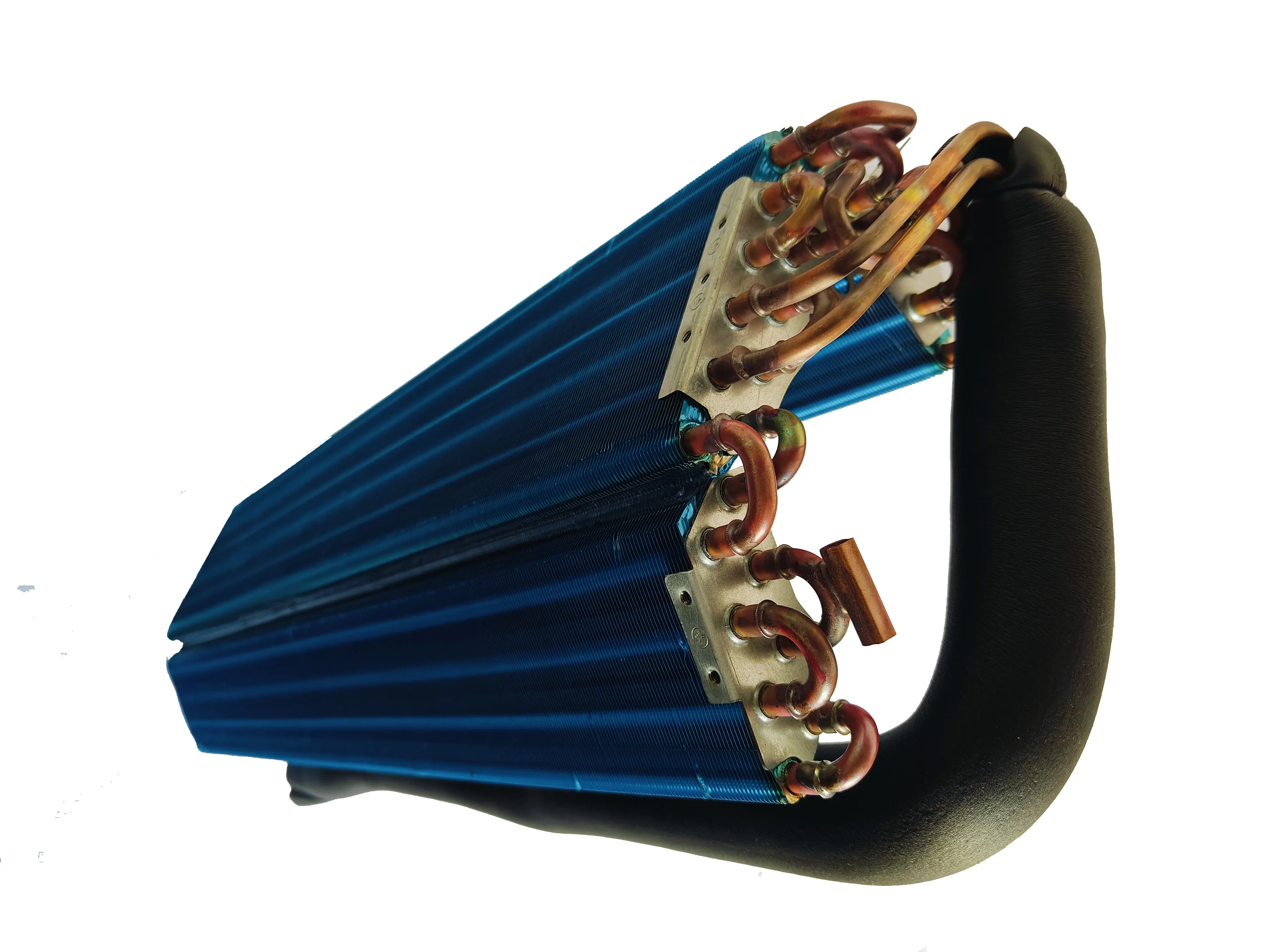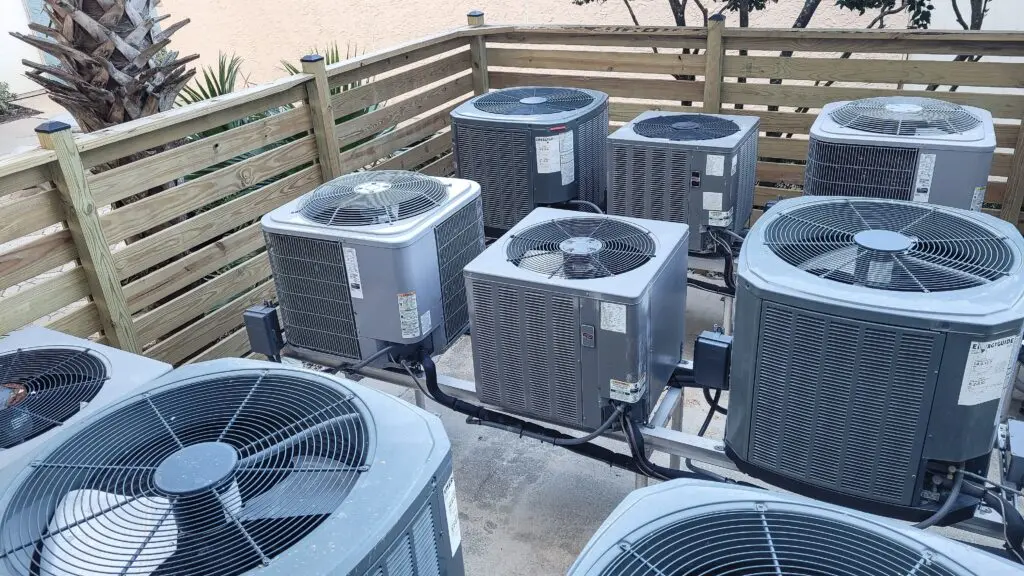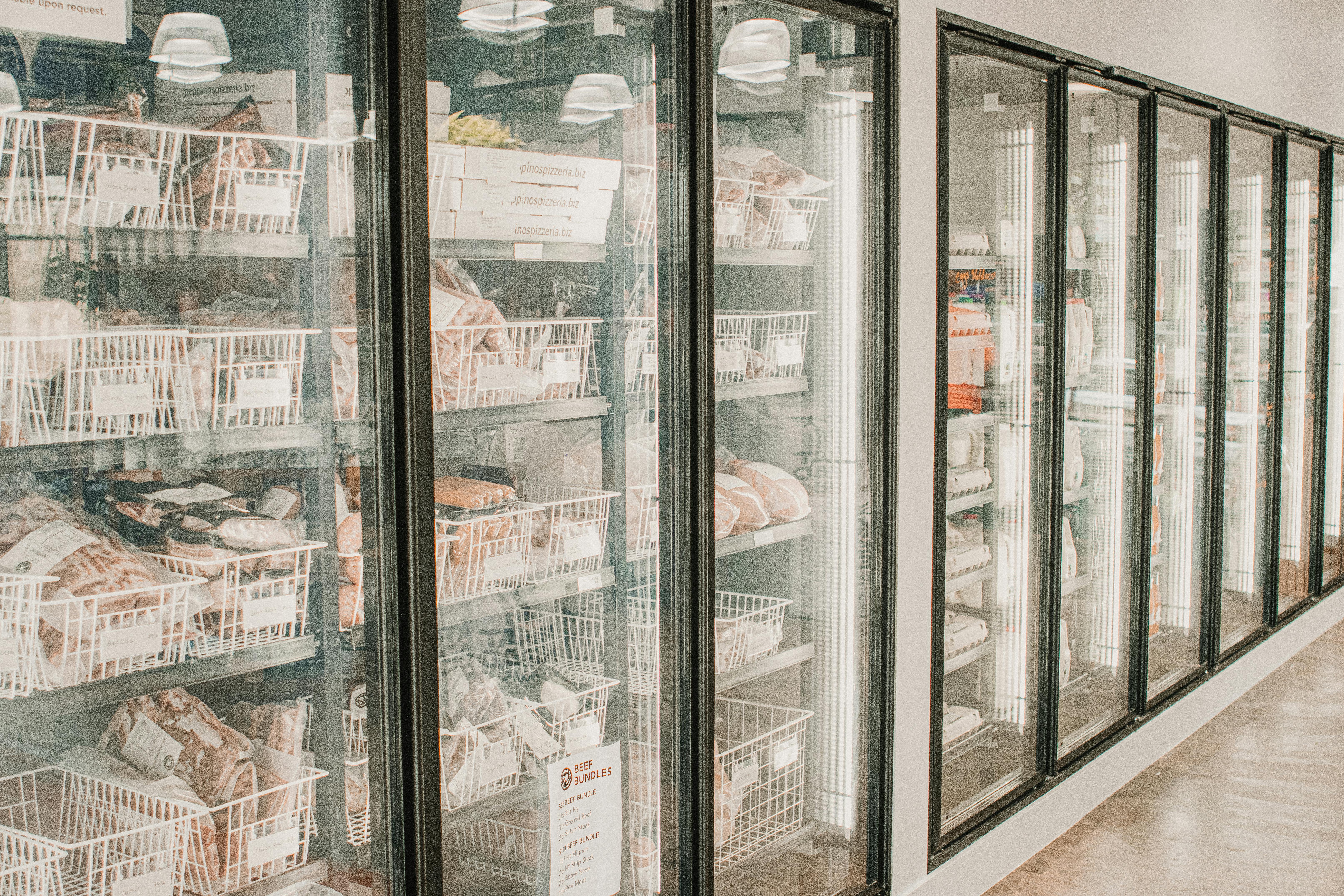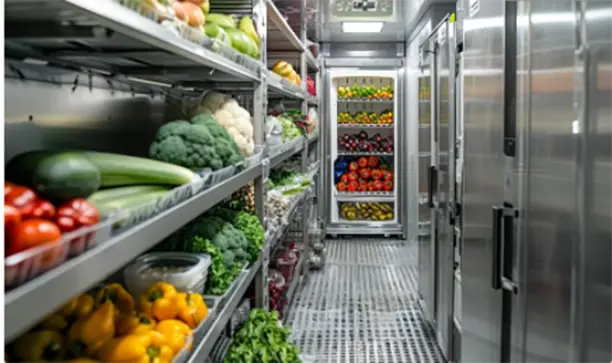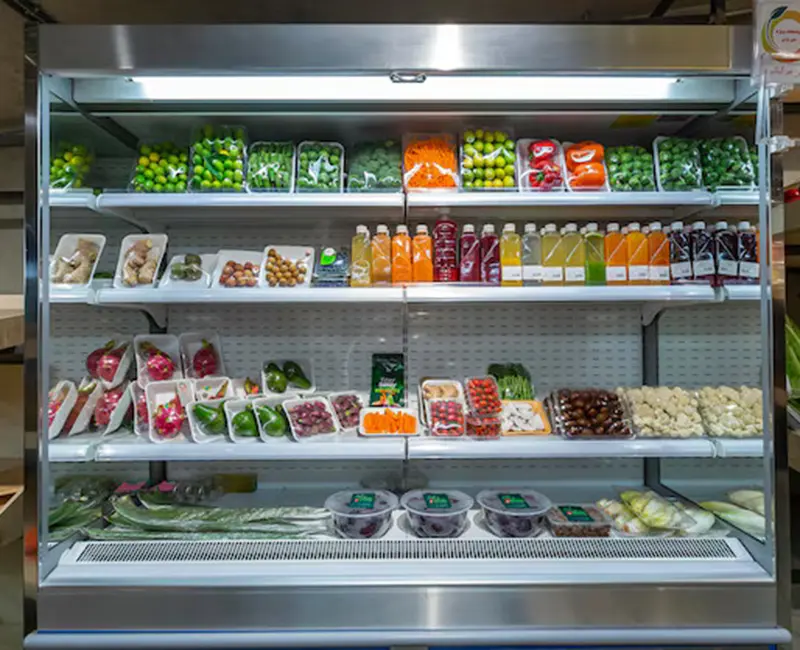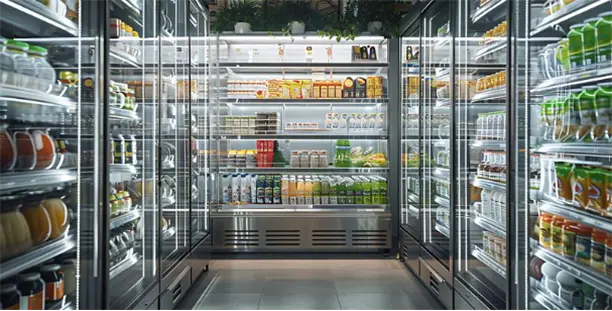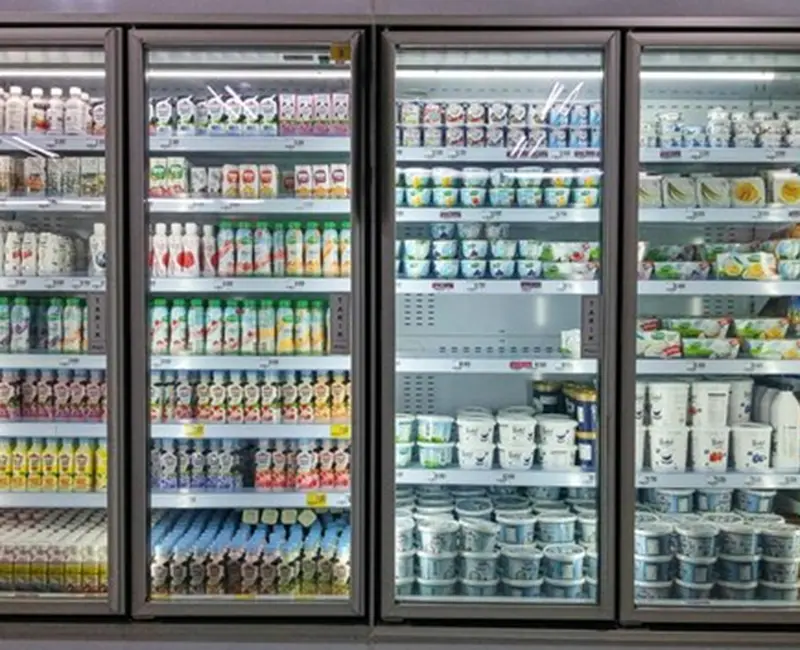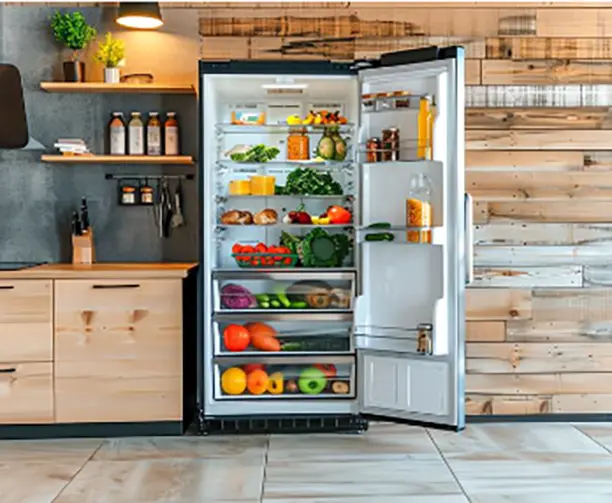Why Copper Fin Heat Exchangers Are the Industry Standard
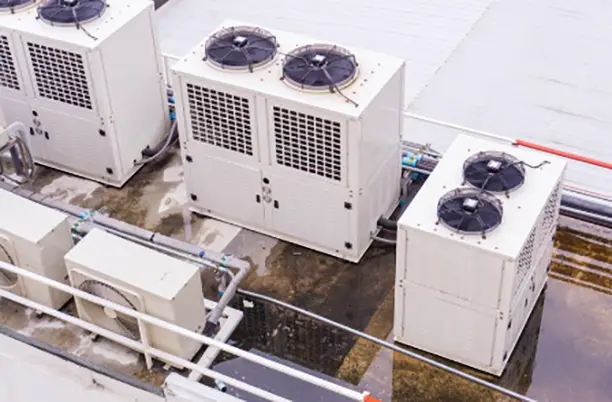
Copper fin heat exchangers have become essential in industries requiring efficient heat transfer. Their unmatched thermal conductivity and durability make them the preferred choice for HVAC, automotive, and refrigeration systems. For example, the HVAC sector has seen an 8% growth in adopting finned tube evaporators due to advancements in energy-efficient technologies. Copper’s high thermal conductivity of 231 Btu/(hr-ft-F) ensures rapid heat transfer, outperforming most metals.
At senjun, we specialize in producing copper aluminum fin heat exchangers for refrigerators, freezers, and other applications. Our expertise ensures reliable solutions for industries prioritizing performance and sustainability.
Key Takeaways
- Copper fin heat exchangers move heat well, making them great for HVAC and cooling systems.
- Copper does not rust easily, so it lasts longer and needs less fixing.
- Copper can be shaped easily, helping make custom designs and saving time.
- Recycling copper uses less energy and money, helping the environment.
- Using copper fin heat exchangers saves energy, cuts costs, and helps the planet.
Superior Thermal Conductivity and Heat Transfer
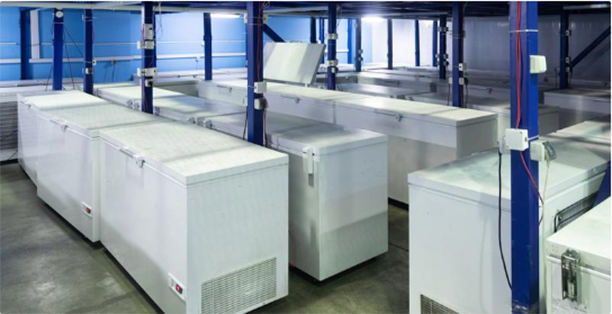
Copper’s High Thermal Conductivity
How copper fin heat exchangers outperform alternatives like aluminum.
Copper stands out as one of the best materials for heat transfer. Its thermal conductivity, measured at 401 W/mK, is significantly higher than aluminum's 237 W/mK. This difference allows copper fin heat exchangers to transfer heat more efficiently, making them ideal for applications requiring rapid temperature changes. The table below highlights how copper compares to other materials:
| Material | Thermal Conductivity (W/mK) |
|---|---|
| Diamond | 2300 |
| Pyrolytic Graphite | 1950 |
| Silver | 429 |
| Pure Copper | 401 |
| Pure Aluminum | 237 |
Copper’s superior conductivity ensures that heat exchangers perform consistently, even under demanding conditions. This reliability is why industries like HVAC and refrigeration rely heavily on copper fin heat exchangers.
The role of copper in achieving rapid and efficient heat transfer.
Copper’s ability to conduct heat quickly reduces energy consumption and enhances system efficiency. At senjun, we leverage copper’s properties to create high-performance copper aluminum fin heat exchangers. These products are used in refrigerators, freezers, and other cooling systems, ensuring optimal thermal performance. By choosing copper, industries can achieve faster heat dissipation and maintain stable temperatures, critical for energy-efficient operations.
Enhanced Heat Transfer Design
The use of fins to maximize surface area for heat exchange.
Fins play a crucial role in improving the efficiency of copper fin heat exchangers. By increasing the surface area, fins allow more heat to transfer between the fluid and the surrounding environment. Advanced designs, such as internally grooved copper tubes, further enhance this process. These tubes promote turbulence, mixing the refrigerant and homogenizing temperatures. Additionally, smaller diameter coils withstand higher pressures, making them compatible with modern, eco-friendly refrigerants. This innovation reduces material costs and creates lighter, more compact systems.
Applications where thermal efficiency is critical, such as HVAC and refrigeration.
Thermal efficiency is essential in industries like HVAC and refrigeration, where precise temperature control is vital. The table below outlines some key industries where enhanced heat transfer design is critical:
| Industry | Description |
|---|---|
| Industrial Processes | Use of heat exchangers in power generation, refrigeration, and chemical processing. |
| Electronic Devices | Implementation of cooling mechanisms like heat sinks and fans in computers and smartphones. |
| Engineering | Optimization of engine performance and energy-efficient building designs through heat transfer. |
At senjun, we design copper aluminum fin heat exchangers tailored to these industries. Our products ensure reliable performance, whether in medical ultra-low temperature refrigerators or dehumidifiers. By focusing on thermal efficiency, we help businesses achieve their operational goals while reducing energy costs.
Corrosion Resistance and Durability
Copper’s Natural Corrosion Resistance
How copper withstands harsh environments and chemicals.
Copper is naturally resistant to corrosion, which makes it ideal for demanding environments. Its chemical properties allow it to endure exposure to fresh water, steam, and even marine atmospheres. Copper also resists damage from saline solutions, organic acids, and caustic substances. This resistance comes from a protective film that forms on its surface. This film acts as a barrier, shielding the metal from further chemical attacks.
At senjun, we use copper’s corrosion-resistant properties to create reliable copper aluminum fin heat exchangers. These products perform well in refrigerators, freezers, and other cooling systems, even in challenging conditions. By choosing copper, industries can ensure long-lasting performance without frequent replacements.
Comparison with materials prone to corrosion, like steel.
Unlike copper, materials like steel are more vulnerable to corrosion. Steel often requires additional coatings or treatments to prevent rust, especially in humid or salty environments. These extra steps increase costs and maintenance efforts. Copper, on the other hand, offers a natural solution. Its ability to resist corrosion without added protection makes it a more efficient and cost-effective choice. This is why industries like refrigeration and HVAC prefer copper fin heat exchangers for their systems.
Long-Lasting Performance
Reduced maintenance costs due to copper’s durability.
Copper’s durability translates to lower maintenance costs over time. Its resistance to wear and tear ensures that systems using copper components remain operational for longer periods. This durability reduces the need for frequent repairs or replacements. At senjun, we design copper aluminum fin heat exchangers that deliver consistent performance, helping businesses save on operational costs.
Examples of industries benefiting from copper’s reliability, including marine and medical applications.
Industries like marine and medical rely heavily on copper’s reliability. In marine environments, copper fin heat exchangers withstand the corrosive effects of saltwater, ensuring uninterrupted operation. In the medical field, ultra-low temperature refrigerators and other equipment benefit from copper’s durability and efficiency. At senjun, we cater to these industries by producing high-quality heat exchangers that meet their specific needs. Our products ensure that businesses can depend on their systems, even in the most demanding applications.
Ease of Manufacturing and Material Compatibility
Copper’s Formability and Flexibility
How copper can be shaped into complex designs for custom applications.
I’ve always been impressed by copper’s unique properties that make it a favorite in manufacturing. Its malleability allows it to be shaped and formed with ease, while its ductility ensures it can stretch into wires without breaking. The atomic arrangement of copper enables it to adapt to intricate spaces, making it perfect for custom designs. These qualities are why copper is often chosen for creating complex heat exchanger systems tailored to specific industrial needs.
At senjun, we leverage these properties to produce copper aluminum fin heat exchangers for various applications, including refrigerators, freezers, and medical ultra-low temperature refrigerators. This flexibility ensures that our products meet the precise requirements of industries that demand high performance and reliability.
Benefits of ease of manufacturing for industries like HVAC and refrigeration.
Copper’s formability simplifies the manufacturing process, reducing production time and costs. In HVAC and refrigeration systems, small-diameter copper tubes enhance efficiency and sustainability. These tubes optimize performance while minimizing refrigerant use, supporting the shift toward natural refrigerants with lower environmental impact. Copper’s exceptional thermal conductivity and corrosion resistance further improve the efficiency of these systems, promoting energy savings and reducing reliance on traditional heating methods.
Compatibility with Other Materials
Copper’s ability to integrate with other metals in hybrid systems.
Copper’s compatibility with other materials makes it an excellent choice for hybrid heat exchanger systems. Its exceptional thermal conductivity enhances heating efficiency, while its corrosion resistance extends the lifespan of the equipment. Copper alloys, such as copper-nickel, resist biofouling better than other metals, ensuring cleaner surfaces and improved air quality. These properties make copper a sustainable option for modern heat exchanger designs.
Examples of copper-aluminum fin heat exchangers produced by senjun.
At senjun, we specialize in manufacturing copper aluminum fin heat exchangers that combine the best properties of both metals. These hybrid systems deliver superior thermal performance and durability, making them ideal for applications like ice makers, dehumidifiers, and display cabinets. By integrating copper with aluminum, we create products that are not only efficient but also cost-effective, meeting the diverse needs of our clients across industries.
Environmental Benefits and Recyclability
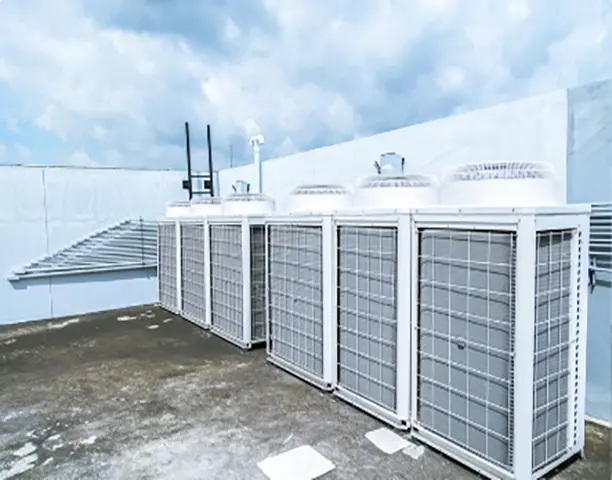
Copper’s Recyclability
The environmental advantages of reusing copper in heat exchangers.
I’ve always admired how copper stands out as one of the most recyclable metals. It can be reused infinitely without losing its quality, making it a cornerstone of sustainable manufacturing. Recycling copper consumes only 15% of the energy required to mine and refine new copper. This energy efficiency reduces greenhouse gas emissions and helps combat climate change. By choosing recycled copper for heat exchangers, industries can lower their carbon footprint while maintaining high performance.
At senjun, we recognize the importance of sustainability. That’s why we incorporate recycled copper into our copper aluminum fin heat exchangers. This approach not only supports environmental goals but also ensures the same level of durability and efficiency that our clients expect.
How recycling reduces production costs and waste.
Recycling copper simplifies the production process. It involves fewer steps than mining, which reduces fossil fuel demand and lowers production costs. This economic advantage benefits both manufacturers and consumers. Additionally, recycling minimizes waste, keeping valuable materials out of landfills. By reusing copper, industries can create a sustainable supply chain that aligns with modern environmental standards.
Sustainability in Industrial Applications
Copper’s role in eco-friendly manufacturing processes.
Copper plays a vital role in advancing eco-friendly manufacturing. Its thermal conductivity and corrosion resistance enhance energy efficiency in HVAC and refrigeration systems. Small-diameter copper tubes, for example, support the use of low-GWP refrigerants, reducing greenhouse gas emissions. Copper also improves the performance of heat pumps, which utilize ambient energy sources for sustainable heating and cooling.
At senjun, we design copper aluminum fin heat exchangers that align with these principles. Our products help industries adopt greener technologies without compromising on performance.
Examples of industries prioritizing sustainability, such as refrigeration and HVAC.
Many industries rely on copper to meet sustainability goals. In refrigeration, copper fin heat exchangers improve energy efficiency and support the transition to eco-friendly refrigerants. HVAC systems benefit from copper’s ability to enhance heat transfer while reducing energy consumption.
| Industry Type | Application |
|---|---|
| Refrigeration | Energy-efficient cooling systems |
| HVAC | Sustainable heating and cooling solutions |
| Marine Services | Corrosion-resistant heat exchanger tubing |
| Medical Equipment | Ultra-low temperature refrigerators |
At senjun, we cater to these industries by producing high-quality copper aluminum fin heat exchangers. Our commitment to sustainability ensures that our products contribute to a greener future while delivering reliable performance.
Copper fin heat exchangers remain the top choice for industries due to their exceptional thermal efficiency, durability, and environmental advantages. Studies show that copper fins experience smaller reductions in heat transfer coefficients compared to alternatives, ensuring consistent performance even under demanding conditions. Additionally, copper enhances energy efficiency and supports the use of eco-friendly refrigerants, reducing greenhouse gas emissions and operational costs.
At senjun, we specialize in crafting high-quality copper aluminum fin heat exchangers for applications like refrigerators, freezers, and medical equipment. Our commitment to innovation ensures that industries achieve long-term reliability, cost savings, and environmental responsibility. By choosing a copper fin heat exchanger, businesses can invest in sustainable and efficient solutions tailored to their needs.
FAQ
What makes copper fin heat exchangers better than aluminum ones?
Copper fin heat exchangers excel due to their superior thermal conductivity and durability. Copper transfers heat more efficiently, ensuring better performance. At senjun, we use copper-aluminum combinations to enhance efficiency while maintaining cost-effectiveness.
How does senjun ensure the quality of its heat exchangers?
At senjun, we prioritize research and development. Our team designs and manufactures copper aluminum fin heat exchangers with precision. We test each product rigorously to meet industry standards, ensuring reliability for applications like refrigerators, freezers, and medical equipment.
Are copper fin heat exchangers environmentally friendly?
Yes! Copper is 100% recyclable, making it a sustainable choice. Recycling copper reduces energy consumption and waste. At senjun, we incorporate recycled copper into our products, supporting eco-friendly manufacturing processes.
What industries benefit most from copper fin heat exchangers?
Copper fin heat exchangers are vital in HVAC, refrigeration, and medical industries. They ensure efficient cooling and heating. At senjun, we create solutions for refrigerators, dehumidifiers, and ultra-low temperature medical equipment.
Can senjun customize heat exchangers for specific needs?
Absolutely! At senjun, we specialize in creating custom copper aluminum fin heat exchangers. Our flexible manufacturing process allows us to design products tailored to unique industrial requirements, ensuring optimal performance.









